- Home
- Penelope Lively
Cleopatra's Sister Page 2
Cleopatra's Sister Read online
Page 2
Prove it! The playground challenge which is perhaps rooted deeper than we think in early perceptions about the phenomenon of truth. And Howard was in no sense an abnormal child. He was the archetypal child, indeed – behaving as he did in one sense because it was his childish nature to do so and in another because he was unique, one of many but profoundly individual.
When he contemplated his childhood, he could see this explanation gleaming beneath the humdrum assortment of apparently insignificant episodes which serves most of us for memory. He saw it as he considered the six-year-old trying to make sense of an ammonite, and the ten-year-old struggling to balance the opposing demands of principle and compliancy. In fact, he did not bother with this sort of personal analysis very often. He was not inclined to introspection. He shrank from those confessional displays indulged in by most adolescents and, later, from the bouts of self-criticism and exposure of the psyche required in emotional encounters. This gave him a reputation for reticence which was not entirely fair. He was not so much reticent as unconcerned with navel-gazing. His own navel he found of limited interest, and other people’s alarmed him. All of which made him ill equipped to meet the demands of close involvement. The first girl he fell for, when he was eighteen, expected him to spend hours discussing her minutest characteristics, varied with an inspection of his own, and resented his reluctance to comply. They parted, both having learned a lesson of some kind.
Subsequently, Howard found himself trying his best to come up to requirements while at the same time retaining what he felt to be his own integrity. Each time he fell in love – or thought himself to be moving in the direction of love – he schooled himself to be responsive. He listened attentively while various women told him what kind of a person they thought they were, and why they had turned out as they had. When they looked to him expectantly for reciprocal revelations he did what he could, and invariably disappointed. It was worst with Vivien, his most enduring partner.
Vivien was not just given to introspection, she luxuriated in it. She presumably engaged in it in solitude, for the most part, but what she infinitely preferred was what Howard came to think of as spectator introspection, in which she carried out the survey and Howard watched, or listened, with appropriate indications of attention and interest. There were strict rules about these. He must not remain in silence for too long, but his interventions must be in accordance with certain regulations. They must complement any statement or diagnosis of Vivien’s, rather than dispute it. They should either invite a development of the present theme, or prompt a move on to a related one, in the general survey of Vivien’s past and Vivien’s personality. They should corroborate, but not intrude.
From time to time the tables would be turned. Vivien would decide that the moment had come for some close scrutiny of Howard. These moments often arrived when they were in bed, as some kind of post-orgasmic indulgence. Vivien, clearly, saw them as that – indulgence of Howard as much as herself. The interrogation was a combination of reward and righteous inquisition.
‘What did you feel like the first time you had sex? And who was it with?’
‘I can’t remember.’
‘Don’t be silly, Howard. Everyone remembers who they did it with first.’
‘I mean I can’t remember what I felt like.’
‘I find that extraordinary. I can remember perfectly. I wonder why you don’t – there could be some sort of problem there. Who was she?’
‘A dental student called Elizabeth.’
‘A dental student? I thought you were in a biology department at university.’
‘I was. I’d strayed at an end-of-term party.’
‘The end of your first term?’
In the early days of their liaison Howard complied with these catechisms, in so far as he was able. He did not do well. He was definitely short on recollection, it emerged, and a dud at self-analysis, though here Vivien was only too prepared to step in and do the job for him.
‘This is interesting, Howard – I’m beginning to see definite signs of a touch of Oedipus complex. Haven’t you thought about that yourself?’
‘No.’
‘Hmmn … That’s interesting too. When exactly do you remember first resenting your father?’
‘I didn’t say I resented my father. I said I once had an argument with him about genetic influence. He didn’t know much about genes.’
‘How old were you?’
‘I’ve no idea … About fifteen, I should think.’
‘And worrying about genetic influence. You see!’
‘I wasn’t worrying. I was trying to explain to my father about dominant genes.’
‘Ah, but why?’
‘Oh, for God’s sake, Vivien!’
He learned how to elude or curtail these sessions. If he couldn’t manage that, then he supplied the bare minimum of information that would keep Vivien relatively satisfied and avoid one of those onsets of simmering resentment, in which he was punished by days of pained silence spiced with angry glances, until driven to apologize for a situation that was not his fault, in his opinion. Vivien would have seen it otherwise. And all the time he knew that, just as he had been doomed to Vivien, so, equally, their days together were finite. Sooner or later, he would make the inevitable move and set in train the process of separation.
But it is not yet time for Vivien, in the scheme of things. There is a narrative, whatever the ambiguities of position between what has happened and what is yet to happen and what is happening at this moment. Vivien’s time will come, or rather, her time in conjunction with Howard’s time. At the moment, she is a circumstance, a tendency, an aspect of the overview of the life of Howard Beamish.
At which moment? A narrative is a sequence of present moments, but the present does not exist, or exists only as a ripple that runs right through the story, a procession of contingent events leading tidily from birth to death. A lifetime is so conveniently structured: it begins and ends. It can be seen as a whole, dismantled and analysed, and can be diagnosed as an uneasy balance between the operation of contingency and decision, with the subject tottering precariously between the two from the cradle to the grave. Which is the stuff of history itself, a conjunction so capricious that it hardly bears contemplation by those unfortunate enough to get mixed up in the process.
2
A Brief History of Callimbia
These events are chronological: they take place in sequence and are in some senses contingent upon one another. Remove one – extract a decade, or a century – and the whole historical edifice will shift on its foundations. But that edifice is itself a chimera, a construct of the human intellect. It has no bricks or stones – it is words, words, words. The events are myths and fables, distortions and elaborations of something that may or may not have happened; they are the rainbow survivors of some vanished grey moment of reality. But Callimbia itself – Callimbia today, as I write and as you read, the continuous fluid Callimbia – is not thus at all.
Callimbia is brick, stone, sand, sea, petrol fumes and donkey dung, bougainvillaea, palms and prickly pears. It is advertisement hoardings and discarded bottles of 7-Up and Turkish fortifications and Roman pavements and the Disneyland architecture of Samara Palace. It is the trams and tower-blocks and Edwardian villas of its capital, Marsopolis. It is a Greek temple and a shanty town of petrol cans crouching among the sand dunes. It is the boulevards and the statue of Cleopatra’s sister and the Army College and Masrun Prison and the Excelsior Hotel. It is the beaches and the harbour and the Military Training Zone (access prohibited to unauthorized persons) and the area far out in the desert where there are curious concrete installations embedded in the sand, razor wire perimeter fencing of a quite astonishing height and depth, and very many armed sentries who are not scrupulous about when or at what they carry out their target practice.
Callimbia itself takes no account of chronology. It is all time and every time; it is impervious and ambiguous. Its stones and bones may bear out the myths and
fables, or they may not. Perhaps they are evidence; perhaps they are a subtle deception. But they are there, with everything that that implies. You can look at them, walk over them, stub your toe on them. They cannot be denied, and therefore they prompt history. Or fantasy.
Callimbia lies today between Egypt and Libya, with the desert to its back and the Mediterranean before it. This was not always so.
Once upon a time there was Gondwanaland. A suspiciously fictitious-sounding name, but no more so than Callimbia, though one wonders how the geologists arrived at it. But it was real enough, 150 million years ago, a great slab of land-mass embracing what we now know as South America, Africa, Arabia, India, the Antarctic, Australia and various other bits and pieces. Of course, it wasn’t thought of as Gondwanaland at the time: there was nobody, or nothing, to think. Just the ceaseless roll of the globe, the ebb and flow of tides, the blaze of the sun, the cold stare of the moon. Growth and decay; birth and death. Creeping and crawling, slithering and splashing, the gnash of teeth and slash of claws, howling and grunting and trumpeting. Eating and being eaten; plenty of fear, pain and lust. Perhaps even a measure of happiness: a satisfactory meal, the sun on your back on a chilly morning. But no thought. Just time, time, time.
And up at the top edge of Gondwanaland there is an area that will eventually become Callimbia – in a mere trice, indeed, sub specie aeternitatis, in the flicker of a few dozen million years. Mountains will rise and fall, seas will change their shape, continents will drift, and lo and behold! Africa will emerge, clean-cut and identifiable, and with it Callimbia, perched up there above the desert and kitted out with a fertile plain convenient for human settlement, a low mountain range in which rise several obligingly prolific rivers, and a fine natural harbour formed by the curve of a most apt promontory jutting out into the Mediterranean. Not to mention the excellent alluvial soil of the coastal plain, ideally suited to the cultivation of many crops, and – more pertinently still – the great slumbering ancient deposits with oil tucked away deep in the desert where what will be Callimbia shades into what will be Libya, amid wastes of sand.
The Earth has heaved, folded and drifted to excellent effect. If it had not behaved as it did – risen at this spot, sunk at that – well then, the circumstances would never have arisen, Callimbia would not have existed and the events here related would not have taken place.
But it did, and they did. And we should spare a thought for that momentous process, for that eternity of infinitesimal change, for the grandeur of the furnishings – the storms, the sunsets, the roaring dawns. The ultimate manifestation of impervious nature. And all for its own sake – no one to take note, to record. No painter frantic to catch the effect before the light changes, no poet wittering on about majesty, sublimity and the celestial scene.
But that innocence and anarchy is to end. The painters and the poets will arrive, and along with them, far more dangerously, the historians. Callimbia comes into existence, and the first echoes are set off. The voices are heard which will reach out into the future. People go there, and talk about what they saw.
Herodotus. Stopping off after his Egyptian sojourn, observing with a clinical eye that combines the precision of a surveyor with the garrulity of a gossip columnist:
The extent of the coastline is fifty schoeni and the mountains which lie beyond the flat country are some ten schoeni from the coast. The soil is black and extremely fertile. The Callimbians grow vines, olives, millet, sesame, dates and a curious sort of bean such as I have not seen elsewhere. Their women are exceedingly beautiful, and decorate their skin with a green dye. Their religious practices are peculiar to themselves: at the full moon they gather beside the sea and pour libations of wine upon the sand, after which they plunge naked into the ocean. It is said that Rhodia, their queen in ancient times, had intercourse with a gazelle. I have heard that Menelaus visited Marsopolis, the principal port of Callimbia, after he had fetched Helen from Memphis, where she had been taken by Paris and then rescued from her abductor by Proteus. The Greek spent some days feasting and taking his pleasure in that agreeable city, while waiting for a favourable wind. Such, at least, is the story.
3
Lucy
Lucy Faulkner was born in Luton because her father met a man in a pub who had a good wheeze going with cheap leather jackets from Spain. Brian Faulkner decided to team up with him, phoned Maureen who was eight months pregnant and sitting placidly in Broadstairs with her mum, and told her to get herself on up there while he looked around for a flat. In the event, the flat did not materialize and Brian discovered that the wheeze wasn’t quite such a good one as he’d thought, and the other bloke was in trouble with the law anyway. So Maureen spent an uncomfortable few months in a bed and breakfast, first on her own and then with an incessantly wailing Lucy, while Brian made forays to Spain and then said they’d better move down to London because he’d heard of something interesting there in carpet sales.
This arbitrary association with a place she was never to know often struck Lucy as odd, when she wrote the word on a form, or glanced in her passport. It induced always a slight frisson when she saw it on a railway timetable or road sign: the intimate signal of personal connection. When she was a child she saw it as some kind of paradise from which they had been expelled. She would question her mother on the subject, closely.
‘I can’t remember it,’ said Maureen, with honesty. ‘I was too busy feeding you and trying to get the rent money off your father.’
Lucy’s acquaintance with her father was to last for a few years only and, in retrospect, seemed as arbitrary as the connection with Luton. She would remain for ever welded to him, just as she remained welded to Luton, but in the same formal and meaningless way. She entered his name on documents. She bore it herself. She had his freckles and his chin. She remembered him – vaguely and without emotion of any kind – as an amiable breezy figure smelling of cigarettes who once took her to a funfair and bought her a stick of candyfloss. The memory seemed appropriately tawdry. And her father – who presumably still existed somewhere out there, older, greyer and stouter – was frozen for ever in her head as that jaunty figure whose manner uneasily combined propitiation with bravado.
Her mother, on the other hand, was constant, unfurling in slow motion from the harassed, loving and cheerily fatalistic figure of Lucy’s childhood to the Maureen of today – unfailingly good-humoured, quirkily opinionated, and for ever a great deal younger than her daughter, or so it now seemed to Lucy.
In some ways, it had always been so. Lucy was not like her mother. She was not compliant and trusting. She stared, probed and queried.
‘Where does the sun go when it’s night-time?’ she demanded, aged about four.
‘It goes to bed,’ replied Maureen comfortably. ‘It goes bye-byes, just like you do. All tucked up. And then it wakes up in the morning and shines in at your window, doesn’t it?’
Lucy heard her in silence, her mouth knotted in disapproval. And then she burst out, ‘No, it doesn’t. It can’t because it’s not a girl.’
What Lucy meant was: your claim is impossible because the sun, patently, is not a sentient being. Whatever it may be – up there, wherever it may be – it is clearly not a conscious articulate creature like you and me, capable of putting on a nightdress and getting into bed and going to sleep. Since she was only four, the best she could do to express her insight was to resort to a crude approximation and an outburst of temper.
Maureen, at the time, had two children under five, a third on the way, and a husband who had embarked on the process of gently easing himself out of their lives. So perhaps she can be forgiven for ducking an important issue. She was overburdened and undersupported, but it had always been like that. So far as Brian was concerned, she was not yet aware of what was going on. The easing process was carried out with many a conciliatory gesture, many temporary outbursts of uxoriousness. It was simply that he was away a great deal. It was his work, of course; travelling in pharmaceuticals or something
by now – Maureen was never very clear what it was he was involved with at any particular moment, he’d always said she wasn’t to bother herself with that side of things, that was his problem. He would be away for a week – ten days – and then turn up with presents for the children and nights of love for Maureen. Then he’d be gone again, with a hug and a wave, diminishing to a series of phone calls, always from call boxes with his small change running out. ‘Reverse the charges, Brian …’ she’d cry into the bleeping receiver, but there’d be a click and he was gone. Rushed off his feet, poor dear. And forgotten to send the housekeeping cheque yet again, drat it.
By the time Lucy was six, the weeks of absence had extended to fortnights and to months. Her father failed to show up for birthdays, and then for Christmas. The phone calls became more infrequent, and then tailed off into postcards, arriving at erratic intervals from places like Scunthorpe or Rhyl, glossy squares of landscape backed with scribbled jollities. Maureen set them up on the mantelpiece and contemplated them without comment. When Keith, the middle child, now four and a half, asked for the umpteenth time, ‘When’s Daddy coming?’, it was Lucy who said crisply, ‘Daddy doesn’t come any more, silly.’ Not looking up from the book she could almost read and which was by now far more important than a man she hardly knew.
And thus did Maureen find herself launched upon an interminable series of sessions with social security people and with solicitors, an activity that soon became a way of life. There she would sit (or stand), always clutching at least one child and a bag of shopping, explaining and trying to follow what was being said by this official or that, and worrying away at questionnaires and at figures which never seemed to come out how they should. She bore no rancour to anyone, a stance which was to exasperate Lucy, in the fullness of time, as she grew up and perceived that there was every reason for rancour to be borne in every direction.

 The House in Norham Gardens
The House in Norham Gardens Family Album
Family Album Life in the Garden
Life in the Garden Oleander, Jacaranda: A Childhood Perceived
Oleander, Jacaranda: A Childhood Perceived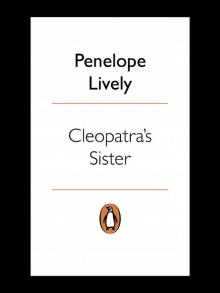 Cleopatra's Sister
Cleopatra's Sister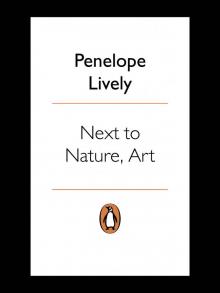 Next to Nature, Art
Next to Nature, Art A Stitch in Time
A Stitch in Time Moon Tiger
Moon Tiger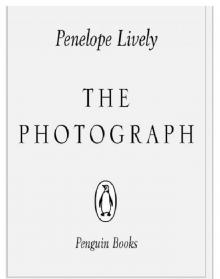 The Photograph
The Photograph Heat Wave
Heat Wave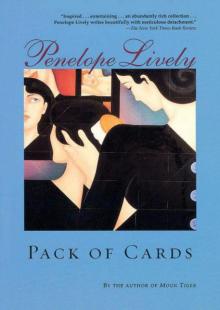 Pack of Cards
Pack of Cards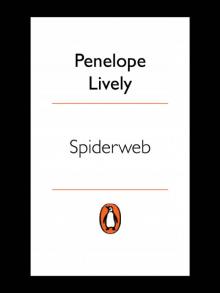 Spiderweb
Spiderweb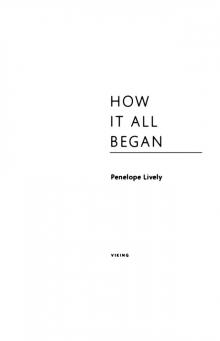 How It All Began
How It All Began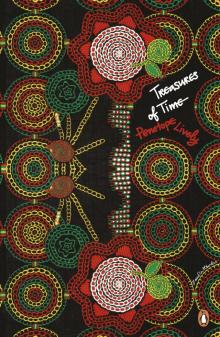 Treasures of Time
Treasures of Time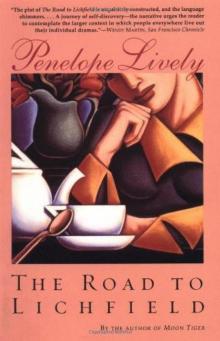 The Road to Lichfield
The Road to Lichfield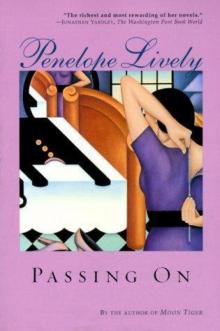 Passing On
Passing On Making It Up
Making It Up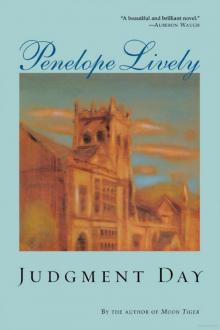 Judgment Day
Judgment Day The Purple Swamp Hen and Other Stories
The Purple Swamp Hen and Other Stories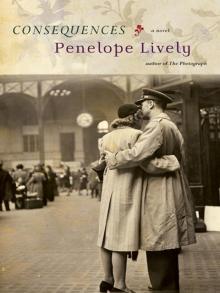 Consequences
Consequences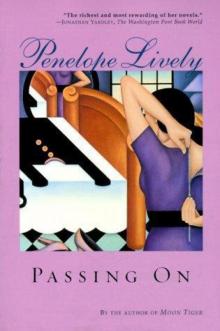 *****Passing On*****
*****Passing On*****